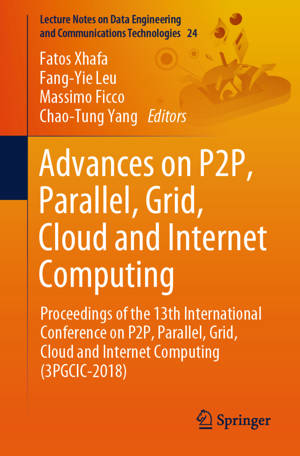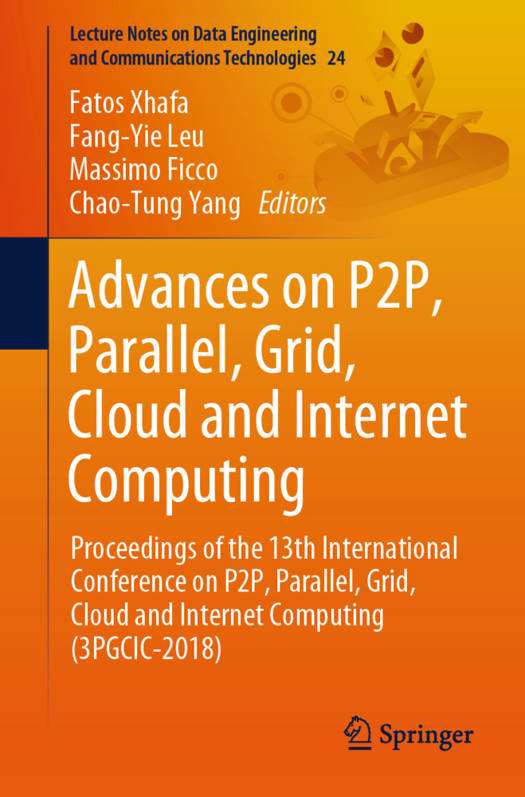
- Retrait gratuit dans votre magasin Club
- 7.000.000 titres dans notre catalogue
- Payer en toute sécurité
- Toujours un magasin près de chez vous
- Retrait gratuit dans votre magasin Club
- 7.000.0000 titres dans notre catalogue
- Payer en toute sécurité
- Toujours un magasin près de chez vous
Advances on P2p, Parallel, Grid, Cloud and Internet Computing
Proceedings of the 13th International Conference on P2p, Parallel, Grid, Cloud and Internet Computing (3pgcic-2018)
Description
This book presents the latest research findings, as well as innovative theoretical and practical research results, methods and development techniques related to P2P, grid, cloud and Internet computing. It also reveals the synergies among such large scale computing paradigms.
P2P, Grid, Cloud and Internet computing technologies have rapidly become established as breakthrough paradigms for solving complex problems by enabling aggregation and sharing of an increasing variety of distributed computational resources on a large scale.
Grid computing originated as a paradigm for high-performance computing, offering an alternative to expensive supercomputers through different forms of large-scale distributed computing. P2P computing emerged as a new paradigm following on from client-server and web-based computing and has proved useful in the development of social networking, B2B (Business to Business), B2C (Business to Consumer), B2G (Business to Government), and B2E (Business to Employee). Cloud computing has been described as a "computing paradigm where the boundaries of computing are determined by economic rationale rather than technical limits". Cloud computing has fast become the computing paradigm with applicability and adoption in all domains and providing utility computing at large scale. Lastly, Internet computing is the basis of any large-scale distributed computing paradigm; it has very quickly developed into a vast and flourishing field with enormous impact on today's information societies and serving as a universal platform comprising a large variety of computing forms such as grid, P2P, cloud and mobile computing.
Spécifications
Parties prenantes
- Editeur:
Contenu
- Nombre de pages :
- 511
- Langue:
- Anglais
- Collection :
- Tome:
- n° 24
Caractéristiques
- EAN:
- 9783030026066
- Date de parution :
- 17-10-18
- Format:
- Livre broché
- Format numérique:
- Trade paperback (VS)
- Dimensions :
- 156 mm x 234 mm
- Poids :
- 762 g

Les avis
Nous publions uniquement les avis qui respectent les conditions requises. Consultez nos conditions pour les avis.





